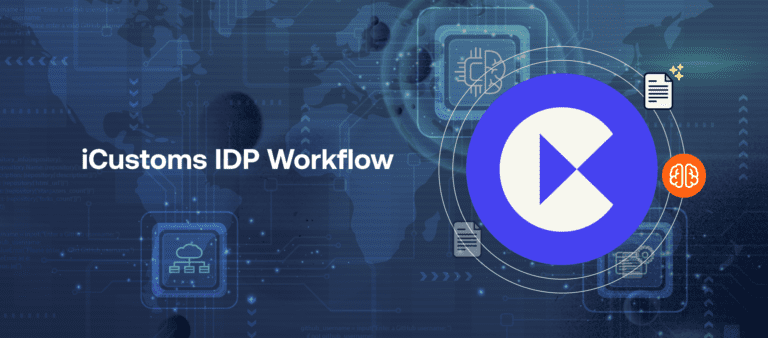Fast & Accurate ENS GB & EU ICS2 Solutions Built for You.
The Ultimate Guide to Choosing the Best ENS Solution
-
Freya Jane
- Director of Customer's Success
Afraid of getting caught by customs authorities while cross-border trading?
Understanding and complying with international trade regulations can be challenging for importers and exporters. A wisely chosen Entry Summary Declaration (ENS) system safeguards your business from errors and delays caused by non-compliance. But how can you find the best ENS solution for your company?
This content is intended to provide you with the key elements to remember while choosing an ENS solution for your business.
Understanding Entry Summary Declaration
An Entry Summary Declaration (ENS) is a safety and security declaration submitted to customs authorities when importing goods. It includes essential details about the goods, allowing the authorities to evaluate them and manage risks before arrival.
The ENS includes:
EORI number of consignee and shipper
Commodity code of items
Number of packages
Container and seal number
Weight of the goods
There are different Entry Summary Declarations for different locations, such as the EU and the UK.
When you import goods in the GB, you are required to submit an ENS GB, also referred to as Safety & Security GB (S&S GB). While when goods are being imported to the EU, you must submit ENS EU to the Import Control System (ICS2).
Want to learn more about the Entry Summary Declaration (ENS)? Read Out!
Factors to consider when choosing an ENS solution
Choosing an ENS solution that meets your requirements includes evaluating many factors, such as:
Regulatory alignment
The most critical factor in international trading is compliance with the regulatory requirements. Thus, it is essential to choose an ENS solution capable of complying with the ever-changing regulatory landscape of global trade.
Not complying with the import and export regulations may lead to financial strains such as penalties and fines. Therefore, having a solution that automatically aligns with the updated requirements is crucial for a successful global business.
Key features of ENS solution
The best ENS solution must have a range of features, including:
Automated data entry: Automation of data entry minimises the cause of human error, a common cause of delays and non-compliance.
ICS2 compliance: An ENS solution must be capable of complying with the latest EU regulations imposed by Import Control System 2 to ensure accuracy and efficiency.
S&S GB compliance: The solution should be compliant with the Safety & Security system of GB and adjust it according to the latest updates in the regulatory environment.
Real-time tracking: The feature of ENS enables traders to track the declaration status of their shipment, which enhances transparency.
Consider cost and ROI
When selecting an Entry Summary Declaration solution, cost is crucial; it includes both upfront cost and long-term return on investment (ROI).
In some ENS solutions, the long-term benefits, such as reduced delays, fines, and penalties, frequently outweigh the initial cost, while some may have higher upfront expenses.
Consequently, it is advised to calculate ROI when selecting an ENS solution by weighing its advantages against the upfront expenses.
Integration with the existing system
Seamless integration of an ENS solution with your existing customs management systems is essential to preventing needless interruptions. Look for the following when choosing an ENS:
Compatibility: To enable seamless data exchange, ensure the ENS solution is compatible with your existing inventory and shipping system.
Implementation ease: Enquire with the ENS vendors about possible downtime and implementation schedules. Go for the quick implementation to minimise the disruption to your business operations.
Assessing the service quality and support of the vendor
Vendor support is essential to help your staff adjust to the new system and resolve any problems that could arise.
Strong customer support: To reduce downtime, reliable support may be needed to understand the new system. Seek out the ENS providers who provide 24/7 support, particularly if your business operates across time zones.
Case studies and testimonials: Examining case studies and customer reviews might reveal information about the vendor’s reputation in the market.
Mistakes to avoid when choosing an ENS solution
Avoid these common pitfalls when selecting the ENS solution:
Ignoring scalability: Avoid choosing the ENS solution based on the present volume of your business; select the one that is scalable and grows with the growth of your business.
Focusing only on cost: A decision solely based on the price may lead to an inefficient solution that could lack critical features.
Overlooking compliance feature: The laws and regulations regarding global trading are constantly changing; thus, avoid selecting a solution that lacks automatic updates for regulatory changes.
Wrapping up
For businesses involved in international trade, selecting the appropriate Entry Summary Declaration (ENS) solution is essential. You can choose a solution that optimises your operations, reduces risks, and boosts productivity by carefully weighing vendor support, scalability, cost-effectiveness, data security, real-time tracking, system integration, and regulatory compliance.
Remember to prioritise a solution such as iCustoms iENS that fits your unique business requirements and expansion goals. Investing in our tool can enhance your global supply chain, prevent expensive delays, and guarantee seamless customs clearance.
You may also like:
Tired of compliance issues, delays, and fines? Streamline your operations with iCustoms.
Reduce costs, minimise risks, and improve efficiency
Subscribe to our Newsletter
About iCustoms
Tired of compliance issues, delays, and fines? Streamline your operations with iCustoms.
Reduce costs, minimise risks, and improve efficiency

